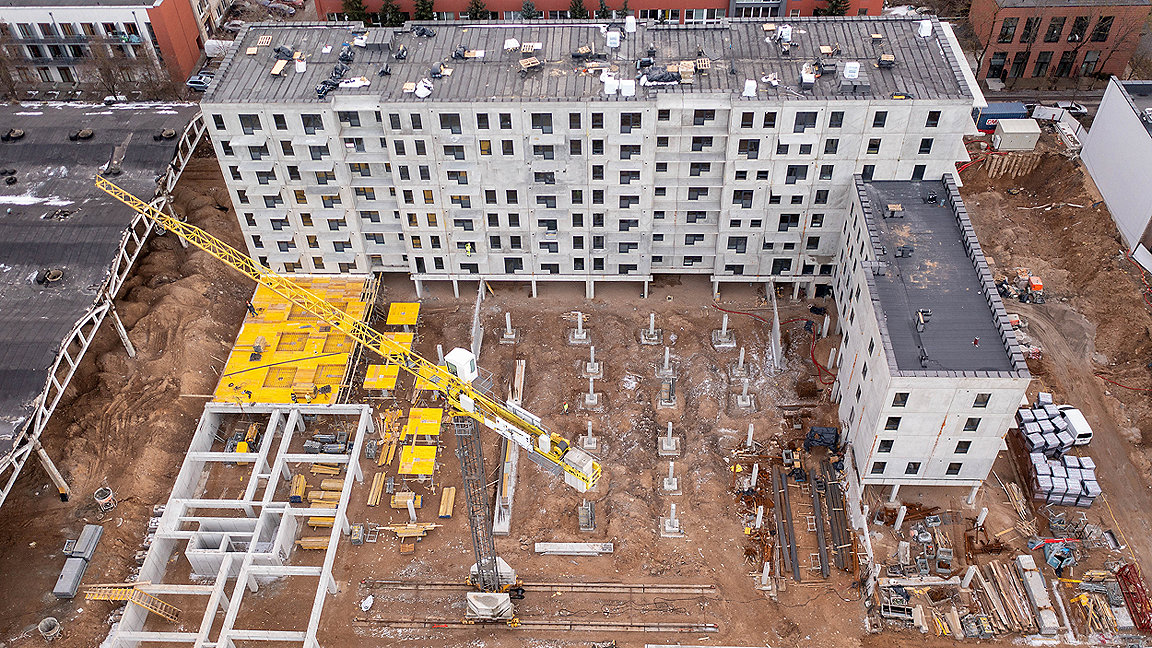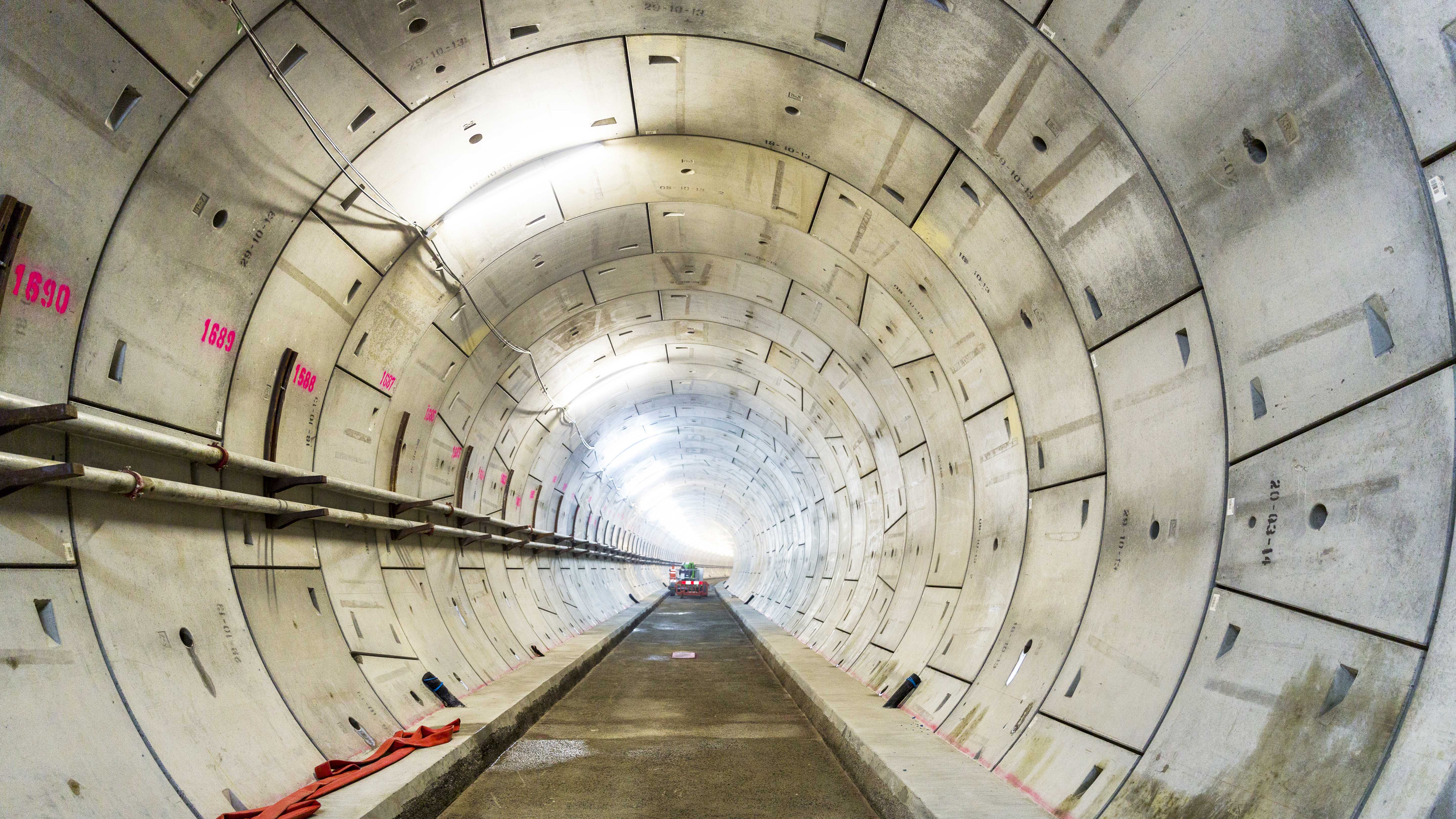
Since the beginning of the pandemic, construction disputes have become both more common and more costly, prompting a shift towards mediation and negotiation.
The rising costs appear to have emphasised the deficiencies of the current dispute resolution process and resulted in the UK construction industry calling for compulsory mediation.
Although a more amicable approach to dispute resolution would be beneficial, mediation has not been as frequently used as other forms of alternative dispute resolution (ADR) in the past.
The Ministry of Justice (MoJ)'s 2021 Call for evidence on dispute resolution in England and Wales for instance found that, while industry experts recognise the benefits of mediation, its use in UK construction has been limited, with inadequate awareness and negative perceptions being among the significant barriers to uptake.
At a lecture last year on the subject, the Rt Hon. Sir Geoffrey Vos pointed to several reasons why mandatory mediation remains controversial, including the perception that parties cannot be forced to participate.
Changing attitudes to dispute resolution surveyed
However, COVID-19 has disrupted norms across the industry and challenged embedded attitudes in many fields. Have perceptions of mediation changed as a result?
Is there now greater consensus that mandatory mediation may provide a more efficient process, reduce the cost of disputes, and enable better collaboration? Or would it just add an unnecessary layer of expense?
Our research, undertaken as part of a master's degree at the University College of Estate Management (UCEM), used both qualitative and quantitative methods to gauge attitudes, conducting questionnaires and interviews with key stakeholders to provide some tentative answers to these questions.
There were 71 respondents to the targeted survey plus three in-depth, semi-structured interviews with stakeholders, individuals with extensive experience in dispute resolution.
Half the survey participants agreed that, due to the pandemic, UK construction disputes have become more common and more costly.
However, one interviewee maintained that parties use COVID-19 as an excuse when other factors are contributing to dispute, thus muddying the waters.
Indeed, interviewees unanimously pointed to the challenges presented by Brexit, the conflict in Ukraine and consequent uncertainty in the global economy. These external factors contribute to supply-chain disruption, labour shortages and material inflation.
UK respondents to the Arcadis 2022 Global construction disputes report had already said they believed they would see more disputes in 2022 than in 2021 on this basis.
The Arcadis report also notes that adjudication remains the most common method of dispute resolution in the UK. Unlike mediation, the cooperation of the parties is not required as the adjudicator's decision is binding on both.
Therefore, although most of those surveyed under this research agreed that construction disputes are not too complex for mediation, this route is still underused because adjudication is considered more appropriate, given its binding nature.
Support for mediation found to be equivocal
Almost all participants in our research agreed that mediation is one of the easier and cheaper ADR methods. However, interviewee feedback highlights that parties sometimes simply use mediation to test the strength of their case before adjudication – casting doubt on whether it is being used for its proper purpose, namely achieving resolution.
A high percentage of participants agreed that implementing mandatory mediation as a first step would likely reduce the cost of disputes, but many were also neutral.
One interviewee was uncertain, suggesting that if parties are unwilling to compromise then mediation can be a waste of time and money, or become a box-ticking exercise if they do not intend to settle. This concurs with sentiments expressed in the MoJ call for evidence.
When we asked what suggestions our participants had for future reform, collaboration between parties was the most frequent response, with the use of collaborative contract models being suggested and risk then being allocated fairly.
However, as one interviewee observed, the party best placed to take risk doesn't always agree to do so.
Standard forms of contract considered
The JCT standard form of contracts 2016 contain mediation clauses. The majority state that if direct negotiations cannot resolve a dispute, each party shall give 'serious consideration' to any request to refer to mediation.
This provision did not exist in the 1998 version, which highlights that mediation is now considered vital to solving disputes at the early stages.
Meanwhile, although NEC4 does not explicitly reference mediation, it did introduce the concept of senior representatives of the parties meeting and attempt to resolve the dispute before adjudication.
Under option W2, the NEC does not make this a compulsory condition as this would breach the Housing Grants, Construction and Regeneration Act 1996, which states that parties may refer to adjudication at any time.
Therefore, the senior representative route is just one option, depending on the parties' agreement.
NEC4 also provided the new option W3, which provides for a dispute avoidance board (DAB) to be appointed. This mirrors a long-standing feature of the FIDIC suite of contracts, and is for use when the 1996 Act does not apply.
NEC4 also introduced a four-week period for negotiating the dispute. This provides an opportunity to undertake mediation and avoid formal dispute resolution proceedings.
However, the UK has not widely adopted DABs or the consistent use of mediation according to the Arcadis 2022 report.
A questionnaire respondent indicated that, when parties are reluctant to mediate, 'a good mediator can encourage [them] to do the right thing'.
Another suggested that there is a need for better-regulated mediators, and that 'being willing to mediate is not being willing to settle'.
An expert witness was cited as a preferred process, given that they would be someone who can provide an opinion based on experience and expertise to provide independent, impartial and unbiased evidence.
A preference for negotiation was also common, as it allows parties to exercise some control. This finding indicates that, although the benefits of mediation are recognised, other ADR processes such as adjudication and negotiation are still favoured.
Reform mulled to help avoid conflict
Testimony from interviewees and questionnaires alike emphasised that the current provisions, though expensive, do provide resolution; however, most respondents conceded there could be a better way.
Common suggestions for reform included greater collaboration between parties, the use of senior representatives from both parties as introduced in NEC4, and mandatory mediation.
Indeed, there was distinct preference for the use of senior representatives, as this would enable in-house mediation with parties then remaining in control of their dispute with formal external mediation as a potential second step if this process fails.
However, as one survey participant commented, mediation could become unnecessary if parties have already tried to settle through other methods.
As the MoJ's pre-action conduct and protocols suggests, our research confirmed that litigation is the last resort. Interviewees intimated that this is due to the negative outcomes for both parties and the subsequent reputational damage that is very likely.
This shows that the sector may be adhering to the protocols, or that attitudes have more generally shifted towards greater collaboration. Nonetheless, it does raise the question of whether mandatory mediation is required.
The need to change the adversarial nature of the construction industry, and subsequently parties' reactions to disputes, was commonly understood, and respondents recognised that mediation is a tool that could enable such change.
Undoubtedly, its use could be increased if it were made mandatory; and significantly, more than half of survey participants agreed that implementation of mandatory mediation in contracts or by government as a first step would reduce the cost of disputes.
Nonetheless, respondents pointed out that existing procedures such as the RICS Dispute Resolution Service's Conflict Avoidance Process and its Conflict Avoidance Pledge are already successfully helping parties avoid conflict and promote collaboration.
This suggests that, while mediation can promote collaboration, the industry should also focus on wider collaborative working and conflict avoidance to prevent disputes or limit their severity when they do occur.
As discussed, respondents also suggested the use of fair contracting types allocating risk proportionally between parties, to promote collaboration and avoid the risk of disputes in the first place.
'There was distinct preference for the use of senior representatives, as this would enable in-house mediation'
Study heralds wider shift in culture
While the research is a small-scale exploratory study, and further investigation is undoubtedly required to confirm its findings, it is apparent that the COVID-19 pandemic has drawn further attention to the deficiencies of traditional dispute resolution, and attitudes towards mediation are undoubtedly more positive now, albeit not amounting to a paradigm shift.
However, implementing mandatory mediation – whether through the forms of contract or legislation – would not be straightforward.
Moreover, with the desire to mediate and willingness to compromise being evident, perhaps the focus should be on encouraging a change in culture to support conflict avoidance and collaborative working.
Certainly, if mediation is to flourish, the research highlights the importance of access to and the value of a good mediator.
This article is an adaptation of research by Amrita Chana for the MSc quantity surveying programme at UCEM. Thanks to UCEM tutor Ian Burnage for his support, and to the participants in this research. The views expressed are the authors' own, and do not represent their employers' positions or opinions.

